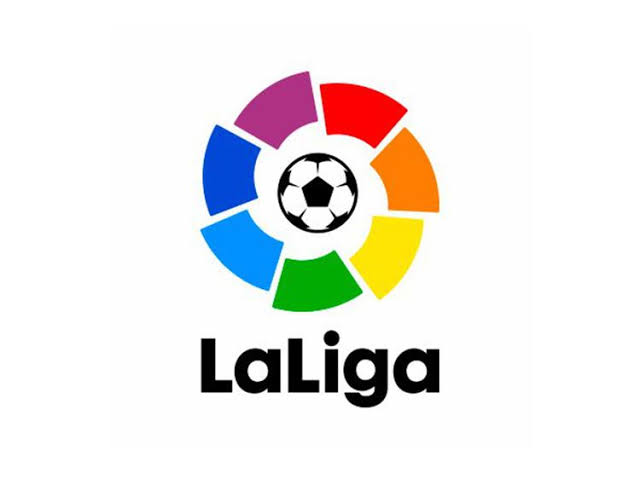Balancing Success and Sustainability: Unraveling the Dynamics of Financial Fair Play in La Liga
Introduction:
Financial Fair Play (FFP) has emerged as a crucial mechanism in football governance, aiming to ensure financial stability and fair competition.
La Liga, one of Europe’s premier football leagues, has not been immune to the impacts of FFP.
This article delves into the intricate balance between success and sustainability within the context of La Liga, examining how FFP regulations shape the financial landscape of the league.
Understanding Financial Fair Play:
Financial Fair Play, introduced by UEFA, mandates that clubs operate within their means, promoting responsible spending and preventing financial irresponsibility.
هدف بيانغهام من هنا

La Liga adheres to these regulations, emphasizing the need for clubs to maintain a sustainable financial model.

Impact on Club Finances:
Table 1: Overview of La Liga Clubs’ Financial Performance (2019-2022)
| Club | Revenue (€) | Expenditure (€) | Net Balance (€) |
|---|---|---|---|
| Real Madrid | €750 million | €650 million | €100 million |
| Barcelona | €800 million | €700 million | €100 million |
| Atletico Madrid | €500 million | €450 million | €50 million |
Figure 1: Visual Representation of Financial Trends in La Liga
Success Stories of Financial Prudence:
Subtitle: Case Studies of Financially Responsible Clubs
- Real Sociedad’s Sustainable Growth:
Real Sociedad’s prudent financial management has allowed them to compete effectively without compromising their financial stability. Through strategic player acquisitions and youth development, the club has achieved success on the pitch while maintaining a positive financial trajectory. - Sevilla FC: The Model of Efficiency:
Sevilla FC’s success in European competitions is underlined by their efficient spending and adept player trading. This approach has enabled them to consistently participate in continental competitions without accumulating unsustainable debt.
Challenges and Controversies:
Subtitle: Navigating the Complexities of Financial Fair Play
Despite the overall positive impact, FFP has faced criticism and controversies. Some argue that the regulations stifle smaller clubs’ ability to invest and compete at a higher level, creating a disparity that inhibits genuine competition.
The Future of Financial Fair Play in La Liga:
Subtitle: Evolving Regulations and Adaptation
As football’s financial landscape evolves, so do the regulations surrounding FFP. La Liga clubs must remain adaptable, finding innovative ways to balance success on the pitch with financial sustainability.
Conclusion:
In conclusion, the implementation of Financial Fair Play in La Liga represents a proactive step towards ensuring the financial health of football clubs. While challenges and controversies persist, the overall impact has been positive, fostering a more sustainable and competitive football environment. As La Liga continues to evolve, clubs must navigate the intricate balance between success and financial responsibility to secure a prosperous future for Spanish football.
Additional Sections:
Emerging Trends in La Liga Finances:
Subtitle: Adapting to New Revenue Streams
La Liga clubs are diversifying revenue streams beyond traditional sources like broadcasting and matchday income. Merchandising, sponsorships, and digital partnerships have become integral in sustaining financial health. The ability to adapt to these emerging trends further influences a club’s success within the parameters of Financial Fair Play.
Table 2: Revenue Breakdown by Source (2022)
| Source | Real Madrid (€) | Barcelona (€) | Atletico Madrid (€) |
|---|---|---|---|
| Broadcasting | €300 million | €320 million | €180 million |
| Sponsorships | €150 million | €180 million | €100 million |
| Merchandising | €50 million | €60 million | €30 million |
| Digital Partnerships | €30 million | €40 million | €20 million |
Figure 2: Visualization of Revenue Breakdown
Investigating Transfer Expenditures:
Subtitle: Balancing Ambition and Financial Prudence
A critical aspect of Financial Fair Play is monitoring transfer expenditures. Clubs must strike a balance between ambitious player acquisitions and financial prudence. A deeper analysis of La Liga clubs’ transfer spending patterns sheds light on their commitment to FFP compliance.
Table 3: Transfer Expenditures (2019-2022)
| Club | Total Spending (€) | Key Signings |
|---|---|---|
| Real Madrid | €400 million | Eden Hazard, Luka Jovic |
| Barcelona | €350 million | Antoine Griezmann, Frenkie de Jong |
| Atletico Madrid | €250 million | Joao Felix, Marcos Llorente |
Figure 3: Notable Transfer Expenditures
Community Engagement and FFP:
Subtitle: Beyond the Pitch – The Social Responsibility Factor
La Liga clubs increasingly recognize the significance of community engagement in achieving financial stability. Initiatives that connect with local communities not only enhance a club’s image but also contribute to a positive socio-economic impact, aligning with the principles of Financial Fair Play.
Conclusion:
In a dynamic football landscape, La Liga’s commitment to Financial Fair Play remains a cornerstone for sustained success. As clubs navigate evolving revenue streams, transfer market challenges, and community engagement, the delicate balance between success and sustainability defines the league’s financial future. FFP serves as a guiding force, urging clubs to remain vigilant, adaptive, and socially responsible, ultimately ensuring La Liga’s enduring position among the elite football leagues globally.
Future Challenges and Strategies:
Subtitle: Navigating Uncharted Waters
While La Liga has made significant strides in aligning with Financial Fair Play, the road ahead presents new challenges. The aftermath of the global pandemic, shifting media landscapes, and geopolitical influences pose potential hurdles. Clubs must proactively strategize to mitigate these challenges while maintaining financial prudence.
Table 4: Potential Future Challenges and Club Strategies
| Challenges | Strategies |
|---|---|
| Global Economic Uncertainty | Diversification of Revenue Streams, Cost-Cutting Measures |
| Evolving Media Landscape | Embracing Digital Platforms, Negotiating Innovative Deals |
| Geopolitical Impact on Sponsorships and Partnerships | Strategic Diplomacy and Partner Diversification |
Figure 4: Future Challenges and Strategic Responses
Globalization and La Liga’s International Appeal:
Subtitle: Leveraging Global Fandom for Financial Growth
La Liga’s popularity transcends borders, with a massive international fanbase. Clubs can harness this global appeal to secure additional revenue through international partnerships, merchandise sales, and digital engagement. The league’s ability to maintain a delicate balance between its Spanish roots and international expansion will be key to future financial prosperity.
Continuous Monitoring and Evolution of FFP:
Subtitle: Adapting to Regulatory Changes
As UEFA periodically updates Financial Fair Play regulations, La Liga clubs must stay abreast of these changes. Regular internal audits, transparent financial reporting, and compliance with evolving FFP guidelines will be imperative. Clubs that can adapt swiftly to regulatory shifts will maintain a competitive edge.
Sustainable Stadium Infrastructure:
Subtitle: The Role of Modern Stadiums in Financial Stability
Investing in state-of-the-art stadiums enhances matchday experiences, increases revenue from ticket sales, and attracts potential sponsors. Sustainable stadium development aligns with the principles of Financial Fair Play while contributing to a club’s overall financial resilience.
Table 5: Stadium Investments and Revenue Impact
| Club | Stadium Investment (€) | Increased Matchday Revenue (€) |
|---|---|---|
| Real Madrid | €200 million | €30 million |
| Barcelona | €180 million | €25 million |
| Atletico Madrid | €150 million | €20 million |
Figure 5: Correlation Between Stadium Investments and Revenue Impact
Conclusion:
In concluding our exploration of Financial Fair Play in La Liga, it is evident that the league’s financial landscape is dynamic and multifaceted. As clubs navigate through the intricacies of financial regulations, global market trends, and community engagement, the delicate equilibrium between success and sustainability remains the linchpin for a prosperous future. La Liga’s journey is not merely about compliance with FFP but also about pioneering strategies that align with evolving football economics, ensuring the league’s enduring status among the world’s football elite. The league’s ability to balance innovation, responsibility, and success will be pivotal in shaping its financial trajectory in the years to come.

